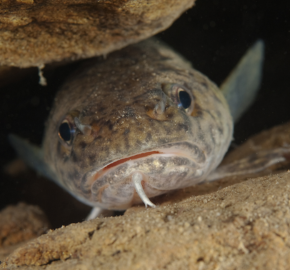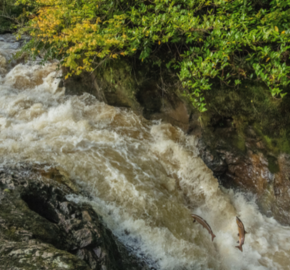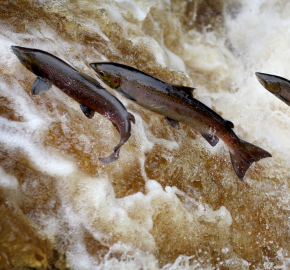Warming temperatures and the effect on freshwater wildlife
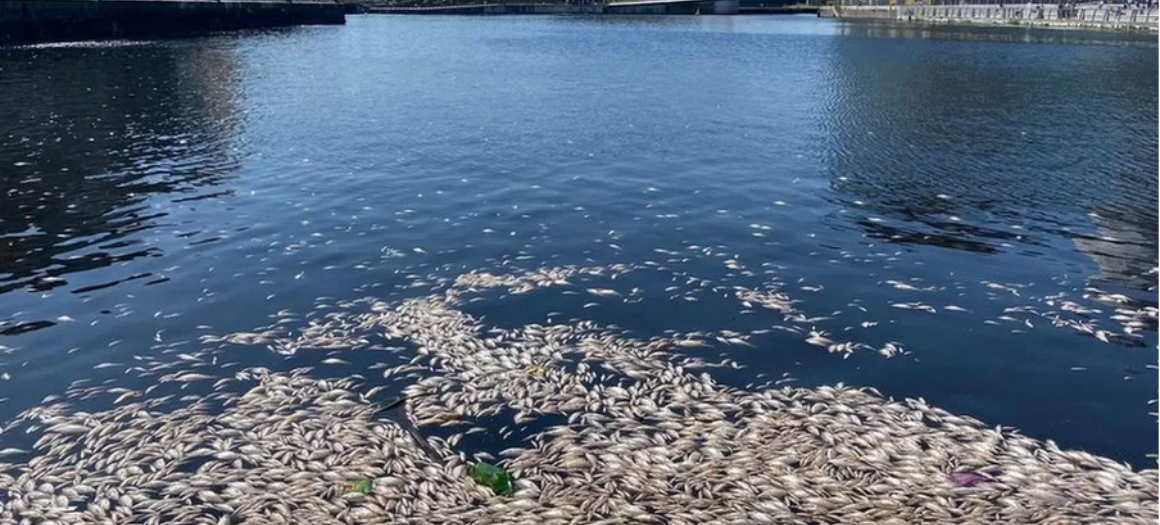
Earlier this month, news outlets across the world scrambled to report that Monday 3 July was officially the hottest day ever recorded on Earth.
A global average temperature of 17.01°C was reported by the US National Centres for Environmental Protection (NCEP). This breaks the previous record of 16.92°C which has stood since August 2016.
Even more worryingly, the warming has not stopped there. The very next day the record was broken again, with temperatures reaching 17.18°C on Tuesday 4 July. The same happened again on Wednesday and Thursday, cumulating in a daily average of 17.23°C on Thursday 6 July to round off 4 days of record-breaking temperatures.
Record-breaking temperatures
The World Metrological Organisation (WMO) believes that last week was the world’s hottest since records began, this is according to their preliminary data. The effects of this are being seen across the globe from record temperatures in the North Sea to Antarctic sea ice levels falling to 17% below average, their lowest since satellite observations began.
WMO climate services director Christopher Hewitt has warned that unprecedented rising temperatures will have…
“potentially devastating impacts on ecosystems and the environment … and we can expect more records to fall as El Nino develops further and these impacts will extend into 2024”.
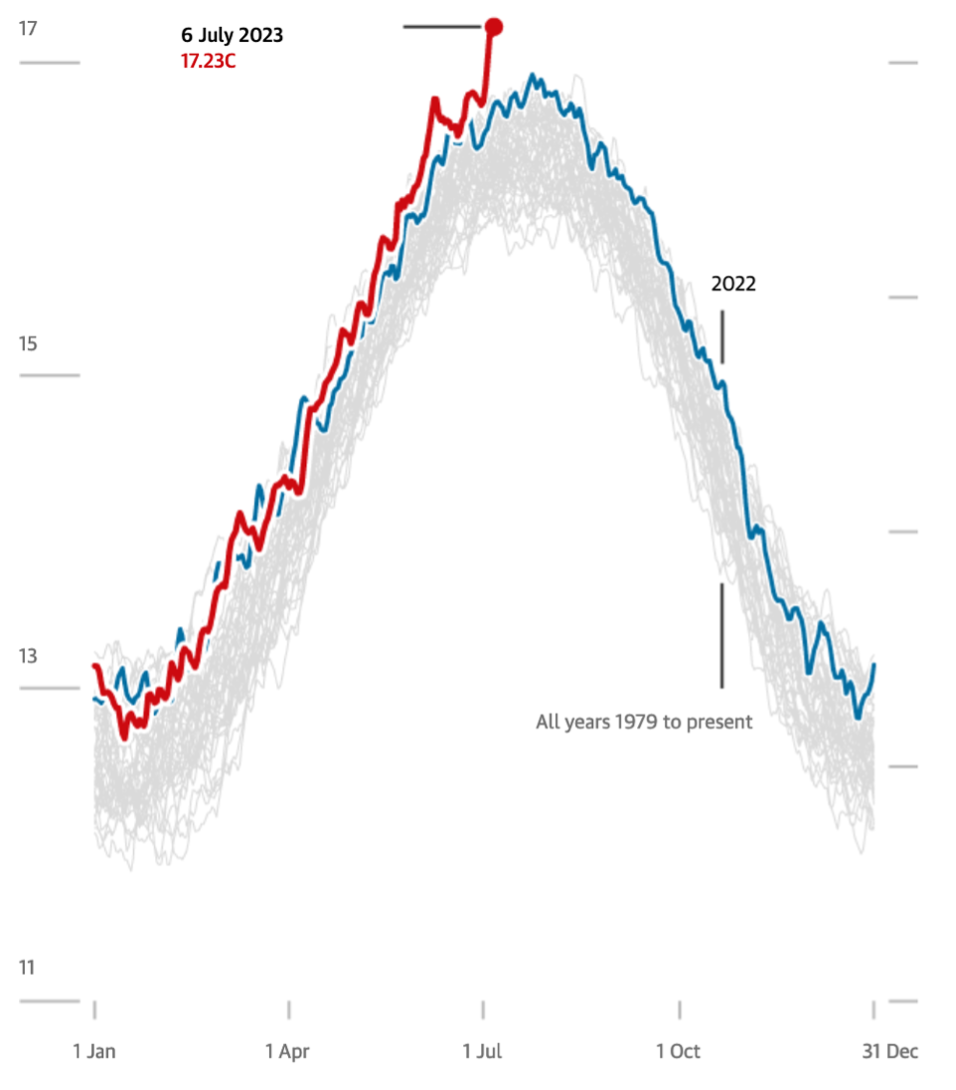
Daily average global air temperature (°C 2m above surface level). Credit: Guardian, Noaa OISST V2.1, Climate reanalyzer (Climate change institute University of Maine).
The impact of warming temperatures on wild fish
Fish populations are increasingly at risk as temperatures continue to rise to unprecedented levels. The Canal and Rivers Trust confirmed reports of over 60 fish mortality incidents across 21 canals during June alone. The true number is thought to be even higher.
Across the UK, reports of fish mortality were a common occurrence throughout June. On 22 June, hundreds of dead fish were found on the River Cam near Ditton Meadows in Cambridge while in Manchester, thousands of fish are thought to have died in the canals of Salford Queys in an incident which took place on 12 June.
The Environment Agency has confirmed they are investigating some of the recorded incidents. They believe these reports are a ‘natural event caused by high temperatures and low atmospheric pressure as a result of thunderstorms, causing low dissolved oxygen levels‘. On the other hand, climate research over the past 30 years has confirmed beyond doubt that human activities are the main driving force behind global warming and increases in the frequency and magnitude of abnormal climate conditions, which leaves us questioning how ‘natural’ these events really are.
Across Scottish salmon farms, where salmon are reared first in freshwater before they are mature enough to move to marine farms, the number of premature deaths has doubled since last year. This worrying trend appears to have continued with a record 2.5 million fish dying this May alone. Marine and freshwater temperatures are forecast to increase further still and not expected to reach their peak until late August / early September. If this is the case, we can expect unprecedented mortality rates across the salmon farming industry.
Warming freshwater ecosystems
Shallower water environments such as rivers and streams are especially vulnerable to rapid warming and face increasing pressure:
- Drought conditions
Longer and more severe droughts are becoming commonplace across the UK and threaten a number of connected ecosystems. Increased heat stressors on flowering plants, coupled with unsustainable use of pesticides, is leading to a global insect population crash. In turn, this will reduce food availability for many aquatic species who feed on invertebrates.
- Deoxygenation
The risk of reduced oxygen in freshwater increases with temperature. Warmer waters have less avaliable oxygen and will suffer from increasing algal/microbial growth which can lead to eutrophication. The severity of this threat grows when coupled with decreases in precipitation and longer periods between rainfall events.
- Differences in water temperature
In our deeper lakes and rivers, warmer temperatures are creating a larger disparity between water being heated at the surface, and cooler water at greater depths. The larger the temperature difference between the warm and cold layers of water the less inclined they are to mix, a process known as stratification. Increases in stratification starve deeper water of oxygen renewal from the atmosphere as less mixing can occur, resulting in dead zones and fish kills as organisms essentially suffocate in oxygen deprived waters.
Many of the fish species who inhabit our freshwater environments, such as salmon and trout, are specially adapted to specific temperature ranges and stream flow conditions. An increase in water temperature may result in them being replaced by other fish species that are more suited to warmer waters. This could see our native species migrate towards the poles as water temperatures become too warm in the lower latitudes. Reduced river levels due to increased drought and hydrological erosion (caused by more severe storm events) will also lead to habitat degradation and shrinkage, reducing the abundance and connectivity of gravel depressions, known as redds, essential for Atlantic Salmon spawning.
Slowing the impact of a changing climate
If current warming trends continue, we will most likely see the hottest year in human history. Urgent action is needed to slow the rate at which the earth’s atmosphere and its waters are warming. Without change, we risk irreversible damage to our freshwater ecosystems.
Little can be done to combat the threat from rising temperatures in the short term. Sadly, we should now expect to see increased fish mortality and a decline in many of our native fish species as they move northwards in search of cooler water or succumb to the range of stresses caused by rising temperatures. In the long term, we must and can do more at a local, regional, and global scale to reduce the direct and indirect impacts of pollution from human activities.


